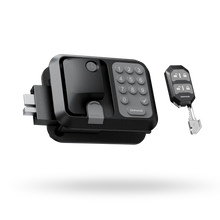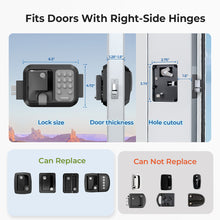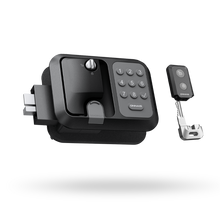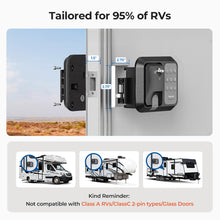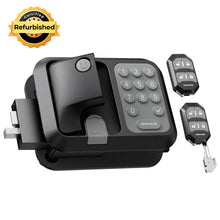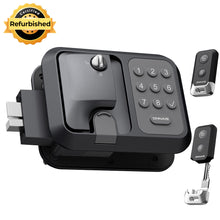Introduction
For many, the allure of RV life is freedom — exploring scenic highways, national parks, and small-town gems at your own pace. But sometimes, that freedom comes with an unexpected threat: theft.
RV theft is more common than most travelers realize. According to the
National Insurance Crime Bureau, thousands of RVs, camper trailers, and motorhomes are stolen each year in the United States. From full-size motorhomes vanishing overnight to travel trailers stripped of valuables, the financial and emotional impact can be devastating.
In this post, we’ll explore three real RV theft stories, each revealing actionable RV safety lessons to help protect your rig.
Story 1: The Disappearing Motorhome in Arizona
In 2021, Mark and Laura, a retired couple from Colorado, spent the winter in sunny Arizona. They parked their Class A motorhome at a quiet RV park outside Phoenix. After securing their site, they rented a small car for day trips and left their motorhome locked and covered.
When they returned after a long weekend, their 38-foot RV — their home on wheels — was gone. No broken glass, no witnesses, just an empty gravel pad.
Authorities later found the RV abandoned 60 miles away in the desert, stripped of electronics, personal belongings, and even its generator. The thieves had likely towed it away using a heavy-duty truck, exploiting the fact that the park had no cameras and minimal nighttime staff.
Lesson Learned: Choose Your Parking Spots Wisely
The biggest takeaway from Mark and Laura’s story is that location and visibility matter more than many RV owners realize. Always park in well-lit, camera-monitored areas, especially if you plan to leave your RV unattended.
RV parks with gated access, security patrols, or visible surveillance deter opportunistic thieves. Even when boondocking, positioning your RV within sight of other travelers or public spaces can reduce risk.
For added protection, install a GPS tracking device or smart lock system that allows you to monitor and lock your RV remotely. These tools can mean the difference between a total loss and a recoverable situation.

Story 2: The Quick Grab at a Rest Stop
In another case, solo traveler Jenna was driving cross-country in her camper van. One evening, she pulled into a rest stop along Interstate 40 for a quick nap. She locked her doors, drew the curtains, and dozed off.
When she woke up an hour later, her front cab window was shattered — her laptop, camera, and purse were gone. It turned out the thief had used a glass punch tool to silently break in, grab valuables, and flee within minutes.
Although Jenna had insurance, the experience left her shaken. “It wasn’t just about the stuff,” she later wrote on a travel forum. “It was realizing how vulnerable I was while sleeping alone.”
Lesson Learned: Secure Your Interior and Stay Alert
This story highlights how quick thefts often occur in seemingly safe, temporary stops like gas stations or rest areas. Thieves know travelers are often tired, distracted, or away for just a few minutes.
Practical RV safety lessons from Jenna’s experience include:
Avoid sleeping in isolated or poorly lit rest stops. Use designated campgrounds or well-trafficked areas whenever possible.
Hide valuables out of sight. Never leave laptops, wallets, or electronics visible through windows.
Install motion-activated alarms or glass-break sensors. Low-cost devices can instantly alert you to intrusion attempts.
Consider a portable safe or lockbox bolted to your RV’s frame for storing passports, cash, or firearms.

Story 3: The Trailer Taken from a Driveway
Sometimes, theft happens before the journey even begins.
In 2022, the Johnson family’s travel trailer was stolen right from their suburban driveway in Texas. The trailer had been parked beside their home, secured with a standard hitch lock. One morning, it was simply gone.
Neighbors’ security cameras later showed a pickup truck backing up at 3 a.m., cutting through the lock, and towing the trailer away — a process that took less than three minutes. The trailer was later found stripped and abandoned two counties away.
Lesson Learned: Layer Your Security
This type of theft is alarmingly common — especially for towable RVs, which can be hitched and moved quickly. The Johnsons’ story demonstrates why layered security is essential.
Here are a few proven anti-theft layers every RV owner should consider:
Hitch and wheel locks: Invest in high-quality, heavy-duty locks that resist cutting and prying.
GPS trackers: Concealed devices or dedicated RV trackers can help law enforcement locate your vehicle fast.
Driveway alarms and cameras: Motion sensors or doorbell cameras can scare off thieves and provide evidence.
Etching VIN or ID numbers: Marking key components deters resale and aids recovery.
According to the
FBI Uniform Crime Reporting program, motorhomes and trailers account for a significant portion of reported vehicle thefts, highlighting the need for layered security.
Extra Insight: What Thieves Really Look For
From interviews with law enforcement and insurance adjusters, a pattern emerges. Most RV thefts are crimes of opportunity. Thieves look for:
Easy targets: RVs parked in dark or isolated areas.
Valuable contents: Visible electronics, tools, firearms, or outdoor gear.
Unattended units: Especially during off-season storage or long road trips.
Taking simple steps — like parking strategically, hiding valuables, and securing your hitch — can reduce your risk by more than 80%.
Conclusion:
These stories remind us that freedom on the road comes with responsibility.
Before your next trip, inspect your locks, review your parking spots, and set up any security systems you’ve been putting off. Share your experiences in RV forums or safety groups — your story might prevent someone else’s loss.
RVing should always be about discovery and adventure — not recovery and regret.
By learning from real RV theft stories and applying these RV safety lessons, you can keep your travels secure, your memories intact, and your peace of mind rolling forward.




